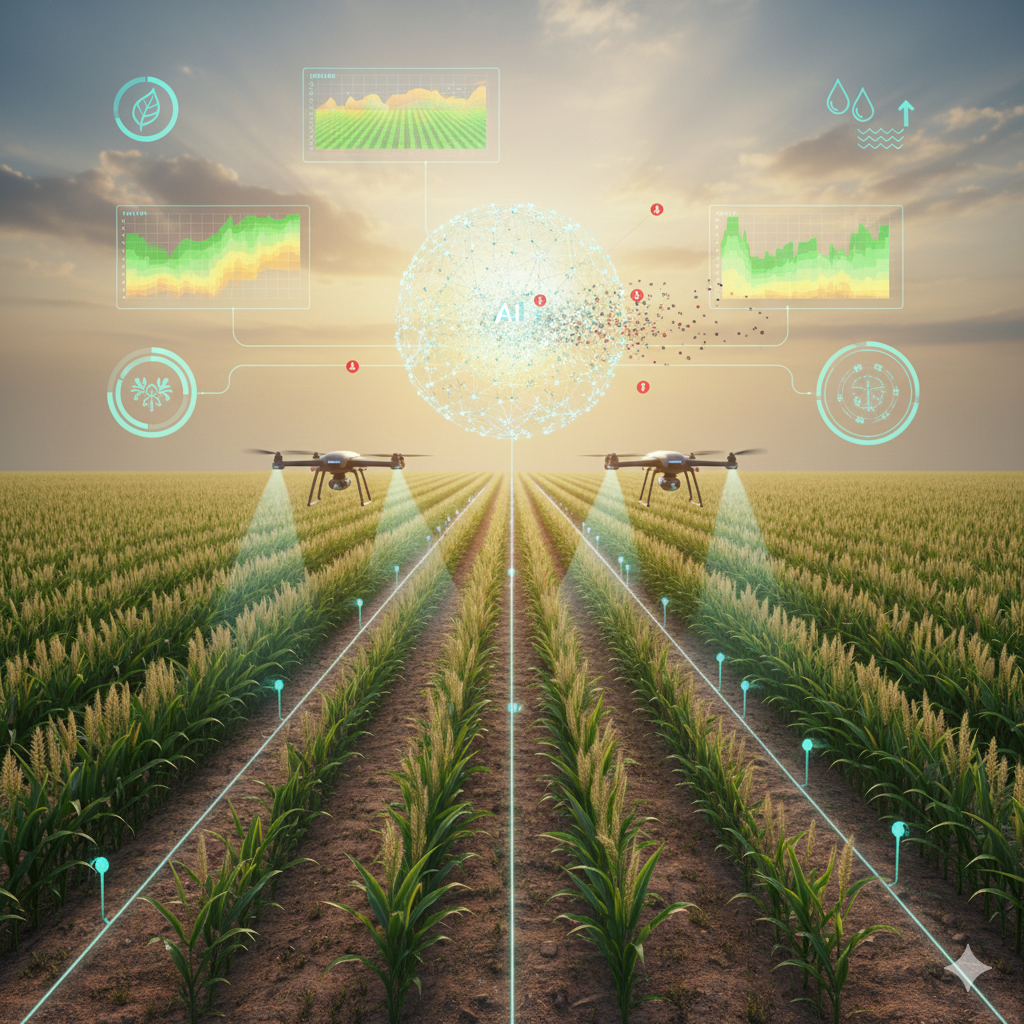Empowering Farmers with AI and ML
Optimizing Crop Yields, Resource Management, and Environmental Sustainability
Faced with challenges such as climate variability, soil degradation, and pest outbreaks, farmers are embracing AI and ML to optimize irrigation schedules, predict crop diseases, and maximize resource utilization. Deploying AI-powered drones and sensors to collect data on soil moisture, crop health, and environmental conditions, the organization leverages ML algorithms to generate insights and recommendations for precision agriculture practices. The implementation of AI and ML technologies yields significant improvements in crop yields, resource efficiency, and environmental sustainability. With reduced water usage, increased crop resilience, and improved profitability, farmers make data-driven decisions and adapt swiftly to changing conditions, enhancing competitiveness and resilience.
Overview:
The agriculture industry is undergoing a transformation driven by AI and ML technologies, with farmers seeking to optimize crop yields, manage resources efficiently, and adapt to changing environmental conditions. A leading agricultural organization aimed to leverage AI and ML to revolutionize farming practices and improve agricultural productivity.
Business Drivers:
Farmers face numerous challenges including climate variability, soil degradation, and pest outbreaks, which can significantly impact crop yields and profitability. The agricultural organization sought to leverage AI and ML to address these challenges by optimizing irrigation schedules, predicting crop diseases, and maximizing resource utilization.
Approach and Deliverables:
The approach involved deploying AI-powered drones and sensors to collect data on soil moisture levels, crop health, and environmental conditions. ML algorithms were trained on this data to generate insights and recommendations for precision agriculture practices. The deliverables included AI-driven crop monitoring systems, predictive analytics for pest detection, and automated irrigation control solutions.
Outcome/Benefits:
The implementation of AI and ML technologies enabled the agricultural organization to achieve significant improvements in crop yields, resource efficiency, and environmental sustainability. They experienced reduced water usage, increased crop resilience to diseases and pests, and improved profitability through higher yields and lower input costs. Moreover, farmers were able to make data-driven decisions and adapt swiftly to changing environmental conditions, thereby enhancing their competitiveness and resilience.
Technology Stack:
The technology stack included AI-powered drones equipped with sensors for data collection, as well as ML frameworks like TensorFlow and sci-kit-learn for building predictive models. Additionally, cloud-based platforms such as AWS and Azure were utilized for scalable data storage and processing, enabling real-time analytics and decision-making in the field.
[]





